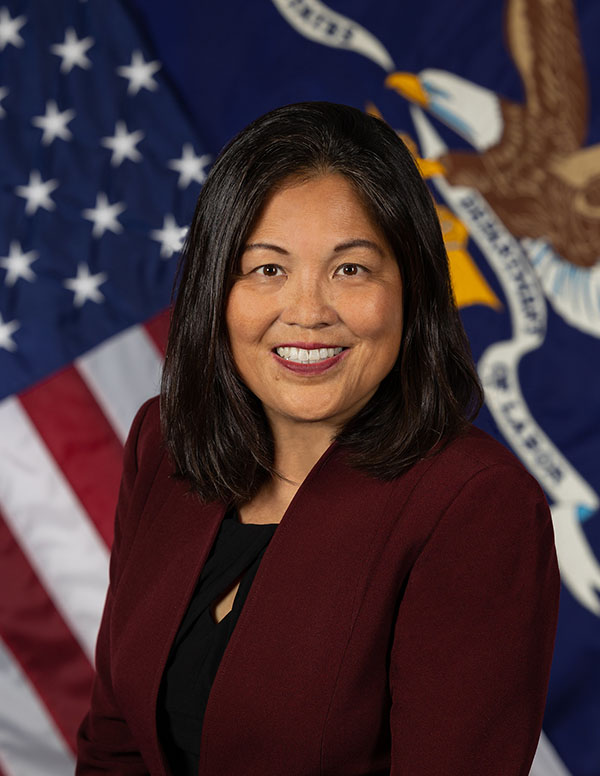
This Q&A has been edited for clarity and brevity below.
Native News Online: There were 353K jobs added in January, with unemployment at 3.7%. What do you attribute this robust report to?
Acting Secretary Su: This job report crushed expectations. The job growth and unemployment rate held steady for two years straight. Labor force participation rate was also steady and ticked up slightly for prime age workers.
We’re also seeing the lowest gaps between the average unemployment rate and that for different communities of color. And this is all just a follow-up sign that Bidenomics, which is what we call the President’s agenda, is to invest in America to prioritize working people and to make sure that everybody gets to share in economic growth.
Native News Online: Given that, we know the unemployment rate tends to trend higher among American Indians and Alaska Natives. What is the Biden/Harris Administration doing to close the gap?
Acting Secretary Su: We are all in on making sure that what we say no one gets left behind, including our Indigenous sisters and brothers.
We had the White House Tribal Nations Summit, hosted by Interior Secretary Deb Haaland, recently here in Washington, D.C,. which I attended, as did many of my cabinet colleagues,
Being there just really confirms what we already know, which is that we have to do more work to make sure that the American Indian and Alaskan Natives are included in the economic recovery to add to their prosperity.
In some places, there are some unique challenges. There’s the challenge that there just haven’t been enough jobs. There haven’t been enough jobs created that are available to some tribal communities. They’re too far away from where jobs are. In some cases, we haven’t invested in the infrastructure of things like transportation that will get people to and from jobs and job training programs. So that’s all much of the work that we’re doing.
One of the things that I know that you know is that we also can’t know what we need to do, or what the barriers and challenges are if we’re not clear on the data.
When President Biden talks about physical roads and bridges. I know that that’s something that matters greatly. I think about our workforce system as roads and bridges. We have to make sure we’re connecting people to good jobs and employers to people, and that includes Native communities, and those roads and bridges to those communities have been too weak for too long. They’ve been riddled with potholes.
And so we’re very invested in creating workforce training programs that are accessible to all communities, and they’re intentional about recruiting, you know, how to reach into all communities. We want to increase funding for technical assistance to make sure they are reaching all who need them.
Native News Online: The Biden-Harris administration has stepped up tribal consultation across federal agencies.Tell us what the Labor Department is doing.
Acting Secretary Su: We have our own internal internal statement about it. We have our own internal training, to make sure that staff knows our approach to tribal consultation. It’s one thing to say it, it’s another thing to do it, and we are our own internal training, so that all staff who interact with you and as a community know what we’re about.
More Stories Like This
Native News Weekly (August 25, 2024): D.C. BriefsUS Presidents in Their Own Words Concerning American Indians
Deb Haaland Tours CNM Workforce Facilities, Highlights Trade Job Opportunities
Federal Court Dismisses Challenge to NY Indigenous Mascot Ban
Sen. Angus King Warns of ‘Whitewashing’ History in National Parks Under Trump Administration
Help us defend tribal sovereignty.
At Native News Online, our mission is rooted in telling the stories that strengthen sovereignty and uplift Indigenous voices — not just at year’s end, but every single day.
Because of your generosity last year, we were able to keep our reporters on the ground in tribal communities, at national gatherings and in the halls of Congress — covering the issues that matter most to Indian Country: sovereignty, culture, education, health and economic opportunity.
That support sustained us through a tough year in 2025. Now, as we look to the year ahead, we need your help right now to ensure warrior journalism remains strong — reporting that defends tribal sovereignty, amplifies Native truth, and holds power accountable.
 The stakes couldn't be higher. Your support keeps Native voices heard, Native stories told and Native sovereignty defended.
The stakes couldn't be higher. Your support keeps Native voices heard, Native stories told and Native sovereignty defended.
Stand with Warrior Journalism today.
Levi Rickert (Potawatomi), Editor & Publisher


